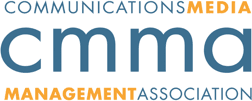As leaders, trust is the key to developing solid, long lasting relationships with our employees, peers and customers. Trust is our reputation and our brand…it is the heartbeat of every successful relationship. I recently attended a webinar titled “Building Relationships of Trust” by the Network of Executive Women. I wanted to share with you some key takeaways that may seem obvious, but require daily practice to keep the habits strong.
Be an active listener. Listening is one of the most important skills you can have. How well you listen has a major impact on your job effectiveness, and on the quality of your relationships with others.
Always add value. Ask, “How can I help?” It doesn’t matter whether it’s your responsibility or not.
Don’t take trust for granted. Just because you had it in the past doesn’t mean it will always be there.
Make sure your words match your actions or you will lose credibility.
Talk to people ”just because.” Build relationships with no agenda in mind. You never know how a relationship with someone can help you later on down the road.
Don’t take credit for your team. Give credit where credit is due. This will lead to greater self-esteem and improved performance.
Be clear and set expectations so others know exactly what the parameters are.
Always maintain confidentiality toensure open and honest communication between customers, clients and employees.
Stay in your own lane and when you least expect it, you’ll get where you’re trying to go.
Don’t email. Pick up the phone or—better yet—talk to people face to face whenever possible so they get to know you better.
Don’t make it all about you. Instead, recognize others by acknowledging their accomplishments and the value they bring.
Be honest! Honesty is the core to building trust.
Don’t ask others to do something you wouldn’t want to do yourself.
Over communicate! Communication is critical and needs be presented in different ways to different people.
Get alignment. Ask others for their point of view, include them in the decision making process, and make sure everyone is in agreement before moving forward.
Always assume the best of others.
Be authentic and be genuine. Your reputation precedes you, so say what you mean and mean what you say.
If there is mistrust – over compensate to try and gain that trust back. It won’t be easy, but it can be done.
Surround yourself with people you trust. Create an inner circle of trust and enlist key people who will give you honest feedback and sound advice. Try to align yourself with an external mentor, an internal mentor, a sponsor (someone who has your back), a peer confidante, and an executive coach. These relationships will help you grow, build your self-esteem, and make you successful.
For more leadership tips check out Expect to Win: 10 Proven Strategies for Surviving in the Workplace by Carla A. Harris.
This article contributed by Robin Martin, CMMA Board of Directors
